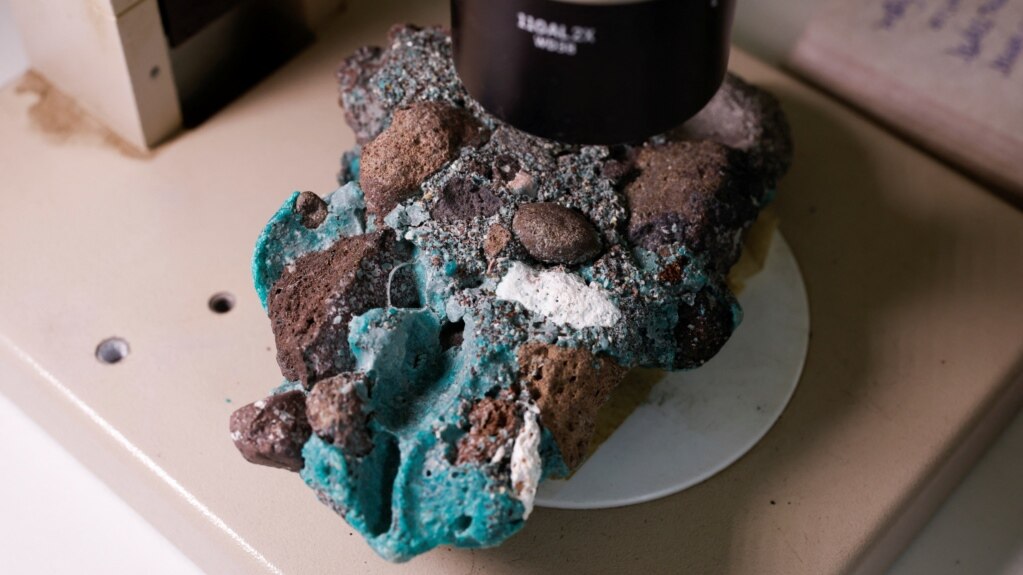Geology is the study of rocks, soil, and the physical structure of the Earth. The geology of Brazil’s volcanic Trindade Island, a home for turtles, is causing concern due to the presence of rocks made from leftover plastic.
The island is about 1,140 km from the southeastern state of Espirito Santo. Researchers say the discovery of melted plastic mixed with rocks on the island is evidence of humans’ growing influence over the earth’s geological movements.
"This is new and terrifying at the same time, because pollution has reached geology," said Fernanda Avelar Santos. She is a geologist at the Federal University of Parana.
Santos and her team ran chemical tests to find out what kind of plastics are in the rocks called “plastiglomerates.” They are called “plastiglomerates” because they are made up of small parts of rock and other materials and it is held together by plastic.
Santos said they identified the pollution as mainly coming from fishing gear, which is a very common waste on the coast of Trinidade Island. She said the gear is pulled by sea currents and gathers on the beach. When the temperature rises, the plastic melts and becomes mixed with the beach’s natural material.
Trindade Island is one of the world’s most important conservation areas for green turtles, or Chelonia mydas. Thousands arrive each year to lay their eggs. The only humans that live on Trindade are members of the Brazilian navy. It keeps a base on the island and protects the turtles.
"The place where we found these samples (of plastic) is a permanently preserved area in Brazil, near the place green turtles lay their eggs," Santos said.
Santos said the discovery raises questions about the effect humans have had on the earth.
"We talk so much about the Anthropocene, and this is it," Santos said. The Anthropocene is a proposed geological period in which human activities have had a very important effect on the earth’s environment and climate.
She said the pollution, the waste in the sea, and plastic incorrectly thrown out in the oceans are becoming geological material “… preserved in the earth’s records.”
I’m Gregory Stachel.

